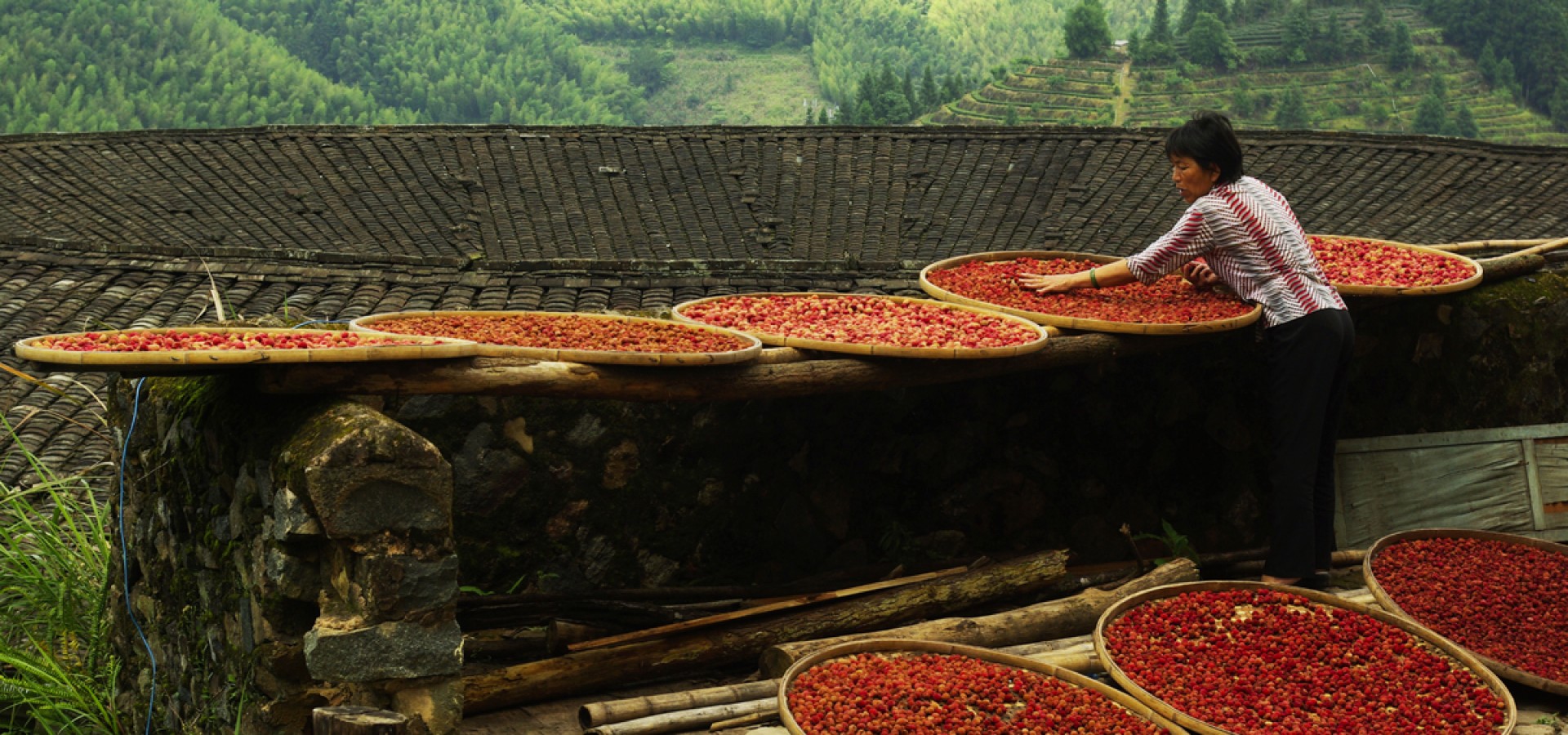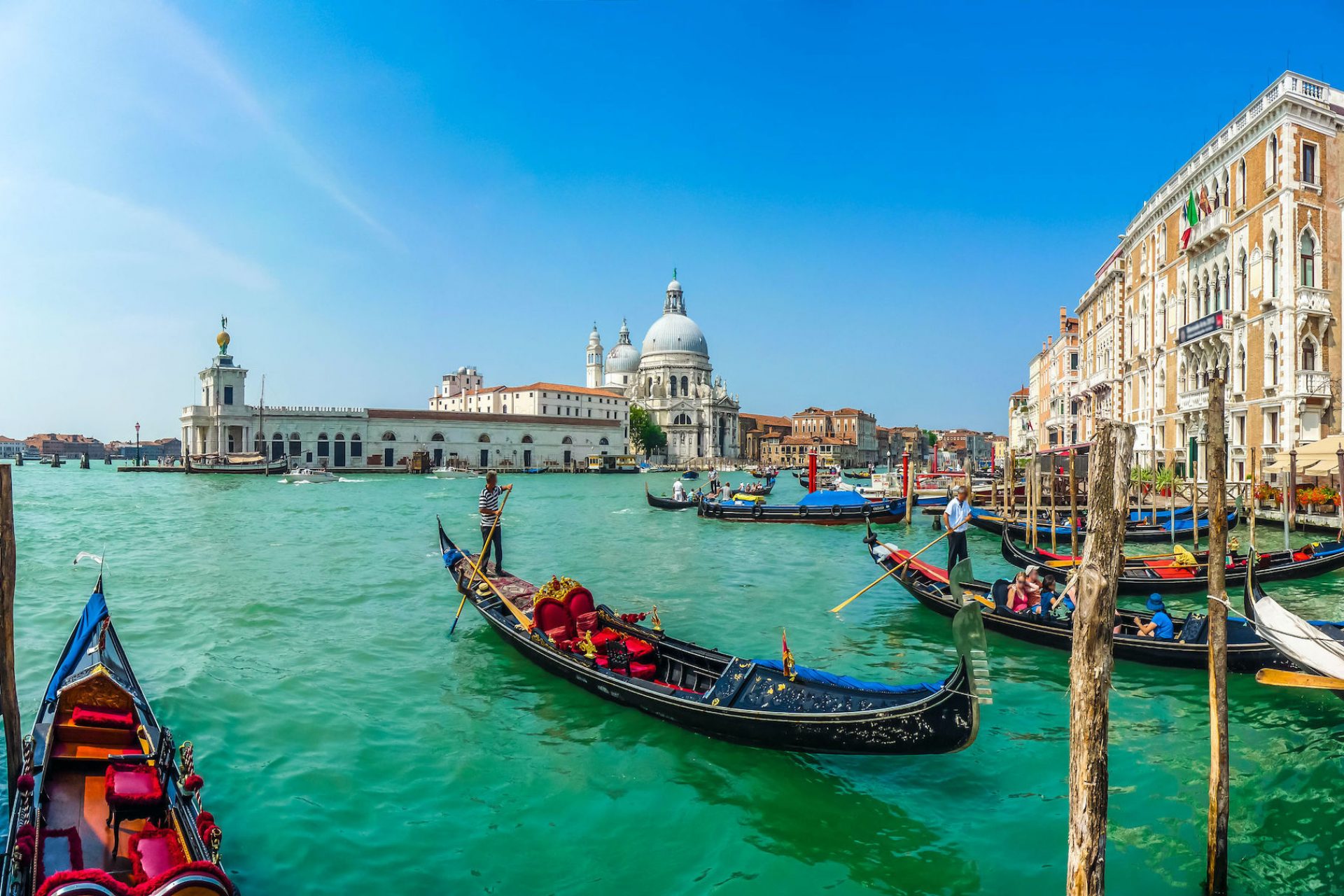Back in 1986, during the Cold War period, satellites uncovered what the US government believed to be nuclear weapon bases, hidden deep within the southern Chinese countryside. Fearing an impending nuclear attack from Communist China, the government sent a highly-trained unit of CIA agents to do a little good old-fashioned spy-work. Imagine how embarrassed they must have felt when they discovered that these “nuclear bases” were in fact just the homes of the local farmers! Yet these weren’t just any old houses; these were the towering Tulou or “Earthen Structures” of Fujian province.
These gigantic circular and rectangular fortresses were built by the Hakka and Hoklo people to protect them from bandits and have remained virtually unchanged for hundreds of years. Some of them house up to three hundred people, who all share the Tulou’s space and facilities as if they were one big happy family! From the sleepy village of Yunshuiyao to the sprawling Tianluokeng Tulou Cluster, these earthen monoliths dominate the landscape and all have their own subtle differences.
There’s the strangely hypnotic Chengqi Lou of Gaobei, which has more inner rings than any Tulou in the world; the compact Fuyu Lou of Hongkeng, which was designed to look like a phoenix spreading its wings; the dizzying Yuchang Lou of Xiabanliao, whose wooden beams appear to zigzag thanks to an architectural defect; and the famous “four dishes and one soup” Tulou of Tianluokeng which, from an aerial perspective, looks like the layout of a typical family dinner. In 2008, a representative sample of 10 Tulou were designated as a UNESCO World Heritage Site. They may not have featured in a James Bond film (yet), but these unusual works of architecture are definitely worth spying on!
Nowadays some of them even function as hotels, meaning that visitors to the region can experience what life is really like in one of these rustic dwellings. After all, there’s nothing quite like watching the locals dry their produce in the centre of the Tulou before whiling away the daylight hours drinking tea, chatting to neighbours, or simply relaxing in the warmth of the sunlight. Since Fujian is a mountainous province, many of these villages are nestled deep within mountain valleys, and verdant tea plantations abound thanks to the fertile mountain soil. This means hiking and tea drinking go hand-in-hand, so be prepared to have your senses tested and then soothed!
Though they are not recognised as one of China’s ethnic minorities, the Hakka people have preserved their unique culture, in part thanks to the Tulou. Their language, known as Hakka Chinese, incorporates features of both Mandarin Chinese and Cantonese, and is considered one of the oldest languages in China. Beautiful Hakka Hill songs, some of them over a thousand years old, resound through the mountains as the villagers diligently and deftly pick tea. Yet tea isn’t the only thing on the menu. From tender strips of pork belly to sumptuous stuffed tofu, the Hakka have become famous for their delectable cuisine. All the more reason to visit a Hakka family in their Tulou!
We at TanSuo are travel professionals who focus on off-the-beaten-track destinations throughout Asia. Whether it’s a guided tour along the ancient Silk Road, a private booking at a Tulou hotel, or simply some advice on how to hike Mount Hua, the most dangerous mountain in China, then we’re here to help! We use our expert knowledge to support you on your trip to some of the most beautiful, culturally enriching, and historically significant places in Asia. So, if you’d like to read more about the Tulou of Fujian province or some of the other obscure travel destinations that can be found throughout China, please be sure to visit our website here.




